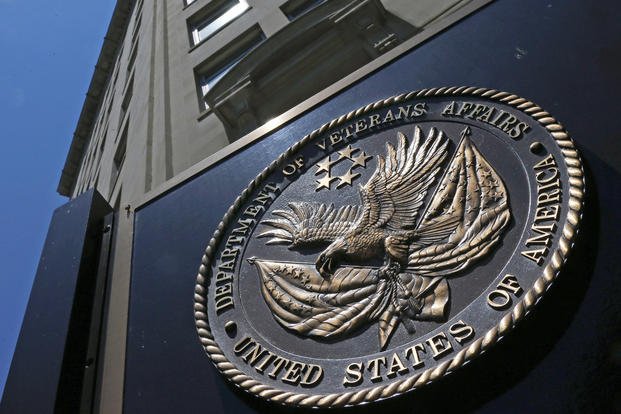The opinions expressed in this op-ed are those of the authors and do not necessarily reflect the views of Military.com. If you would like to submit your own commentary, please send your article to opinions@military.com for consideration.
My son was the best person I ever knew. Kind, loving and generous, Logan never met someone who wasn't a friend. Just like his father, Logan wanted to join the military. He had a strong sense of duty and wanted to help people.
But I hardly recognized Logan when he came back from service. He struggled with his mental health throughout his time in the Navy, eventually receiving an honorable discharge. He came home reserved, withdrawn, anxious and, unbeknownst to me, had attempted suicide multiple times.
At the time, I worked at the Veterans Affairs Medical Center in Fayetteville, North Carolina, as a pharmacy technician. I knew the VA existed for the very purpose of helping men and women like my son, especially those with disability ratings and mental-health struggles due to their service.
I encouraged Logan to seek help, and finally, after years, he agreed to come to the VA and ask for a mental-health appointment.
Under the current VA MISSION Act law, the VA has standards in place for how to handle scheduling appointments for mental-health care. They look for an open appointment at the facility, and if they can't get the veteran in to be seen within 20 days, they refer them to outside doctors in the community. The Community Care Program, as it's titled, allows a veteran such as my son to use his VA benefits to see non-VA doctors.
Long wait times aren't always an option for mental-health care, so the Community Care Program is often a lifeline veterans can hold onto.
Logan told me he was given an appointment, though he didn't tell me when. I was just grateful to the VA and hopeful for his future. But that hope was short-lived.
The wait time for his mental-health appointment was five months long. That should have made him eligible for community care, but to my knowledge, nobody from the VA ever contacted Logan about coordinating that care.
Two months into waiting for an appointment, Logan took his own life. My only child died waiting for help from the VA that wasn't coming.
I believe the VA stands in the way of veterans getting access to community care. It's become a tangled bureaucracy that is focused on itself rather than helping the veteran. That was clear to me in how my son was treated, and then how I was treated after his death. I was held at arm's length, given little information as a next of kin and treated with such coldness that I chose to leave VA employment last year through early retirement.
If there is something I can cling to for purpose now, it's that I won't let another mother feel this pain if I can do something about it. My child is gone, but I'll ensure he can still help others, just like he did in his 27 years of life.
It starts with giving veterans access to desperately needed care.
Even though the Community Care Program is built with standards for veterans to use their benefits to get care outside the VA when wait times are too long, VA administrators have found ways around the law. Veterans are often stuck in the maze of trying to advocate for themselves to get community care, if they even know they have that option.
As I've gone through the process of sharing Logan's story, I've been encouraged by members of Congress and organizations such as Concerned Veterans for America who want to make things right for veterans at the VA.
In particular, the Veterans' ACCESS Act would make it law that the VA has clear standards for veterans using community care and that the VA communicates those standards with veterans. Two more pieces of this bill, though, are more critical to me. First, the VA would need to create a portal so veterans can self-schedule at the VA or a community care provider. Second, the bill would create a pilot program for veterans that need certain kinds of mental-health-care access to get community care without VA pre-approval first.
No need to get a referral from the VA; just go get the help you need.
This kind of access could have saved my child's life. It could still save another mother's child.
I beg Congress, if you care about veterans, their mental-health struggles and the families who support them, to pass the Veterans' ACCESS Act. Our children's lives depend on it.
Veterans and service members experiencing a mental-health emergency can call the Veteran Crisis Line, 988 and press 1. Help also is available by text, 838255, and via chat at VeteransCrisisLine.net.
Lori Locklear is a former VA employee and mother to Navy veteran Logan Willis, who passed away by suicide in 2022. She lives in the Fayetteville, North Carolina, area where she connected with Concerned Veterans for America, an organization that advocates for expanded health-care choices for veterans, like the Community Care Program, to help get her story heard.










